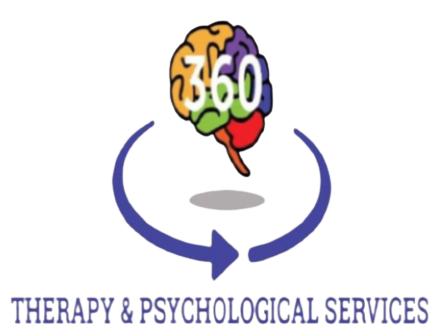10 Advantages of Individual Therapy for Personal Growth

Individual therapy, also known as counseling or psychotherapy, offers a unique and personalized approach to addressing mental health concerns and promoting personal growth. Certified individual counseling therapists provide tailored support and guidance to help clients navigate challenges, improve coping skills, and achieve their therapeutic goals.
Therapeutic goals refer to specific objectives or targets that clients and therapists collaboratively establish during the therapeutic process. These goals serve as a roadmap for therapy sessions, guiding the focus of discussions, interventions, and progress tracking. Therapy goals are tailored to each individual’s needs, challenges, and desired outcomes, aiming to address specific areas of improvement and promote personal growth
In this article, we’ll explore the numerous advantages of individual therapy and why it is an essential tool for personal development and achieving therapeutic goals.
Understanding the Importance of Individual Therapy & Therapy Goals
Individual therapy, conducted by a certified individual counseling therapist, focuses on the specific needs and goals of each client. Unlike group therapy, which involves multiple participants, individual counseling therapy offers a one-on-one therapeutic relationship. This personalized approach allows the therapist to delve deeply into the client’s concerns, emotions, and experiences, leading to more targeted interventions and effective outcomes.
Personalized Treatment Plan
One of the primary benefits of adult individual therapy is the creation of a personalized treatment plan. The certified individual counseling therapist works collaboratively with the client to identify goals, explore underlying issues, and develop strategies for addressing them. This customized approach ensures that the therapy sessions are tailored to meet the unique needs of the individual, leading to more meaningful progress and growth.
Confidentiality and Privacy
Individual therapy sessions are conducted in a private and confidential setting, allowing clients to express themselves freely without fear of judgment or stigma. This confidentiality fosters trust and openness between the client and therapist, creating a safe space for exploring sensitive topics and emotions.
Focus on Self-Exploration and Insight
Individual counseling therapy provides an opportunity for deep self-exploration and insight. The therapist helps clients gain a better understanding of their thoughts, feelings, behaviors, and patterns of interaction. Through this process, clients can uncover underlying issues, gain clarity, and develop new perspectives and coping strategies.
Tailored Interventions
Certified individual counseling therapists utilize a variety of therapeutic techniques and interventions based on the client’s unique needs and preferences. These may include cognitive-behavioral therapy (CBT), mindfulness-based approaches, psychodynamic therapy, dialectical behavior therapy (DBT), and more. The therapist adapts these interventions to suit the client’s goals and challenges, maximizing the effectiveness of the therapy process.
Flexibility and Convenience
Individual therapy sessions offer flexibility in terms of scheduling and frequency. Clients can work with their therapist to arrange sessions that fit their schedule and lifestyle. This flexibility ensures that therapy remains accessible and convenient, promoting consistency and continuity in the therapeutic journey.
Emotional Support and Validation
The therapeutic relationship in individual counseling therapy provides clients with emotional support, validation, and empathy. The certified individual counseling therapist offers a non-judgmental space where clients can express their emotions, process difficult experiences, and receive validation for their feelings and experiences. This support can be instrumental in building resilience and coping skills.
Goal Setting and Progress Tracking
Individual therapy emphasizes goal setting and progress tracking, allowing clients to monitor their growth and achievements over time. The therapist collaborates with the client to establish clear therapy goals and milestones, regularly reviewing progress and making adjustments as needed. This goal-oriented approach helps clients stay motivated and focused on their journey towards personal growth and well-being.
Holistic Approach to Wellness
Certified individual counseling therapists take a holistic approach to wellness, addressing the interconnected aspects of a client’s life, including relationships, work, health, and lifestyle factors. Through exploration and intervention, clients can work towards achieving balance, fulfillment, and overall well-being in various areas of their lives.
Coping Skills Development
Individual therapy provides a supportive environment for developing and enhancing coping skills. Clients learn effective strategies for managing stress, anxiety, depression, anger, and other emotional challenges. They also acquire communication skills, boundary-setting techniques, and problem-solving abilities that contribute to improved resilience and emotional regulation.
Long-Term Benefits and Maintenance
The benefits of individual therapy extend beyond the therapy sessions themselves. Clients gain valuable insights, skills, and self-awareness that can be applied to their daily lives and future challenges. The tools and strategies learned in therapy serve as long-term assets for maintaining mental and emotional well-being, fostering personal growth, and enhancing overall quality of life.
FAQs
What are the benefits of individual treatment?
Individual treatment offers personalized support, confidentiality, focus on self-exploration, tailored interventions, flexibility, emotional support, goal setting, holistic wellness approach, coping skills development, and long-term benefits for personal growth and well-being.
Why is individual therapy important?
Individual therapy is important because it provides a private and supportive environment for clients to address personal challenges, gain self-awareness, develop coping skills, achieve therapeutic goals, and experience long-term growth and well-being.
What are the benefits of therapy goals?
Therapy goals provide direction, motivation, and a framework for the therapeutic process. They help clients focus on specific areas of improvement, track progress, celebrate achievements, and maintain momentum towards personal growth and positive change.
In Conclusion
In conclusion, individual therapy, facilitated by a certified individual counseling therapist, offers a multitude of advantages for personal growth and well-being. The therapeutic journey fosters self-awareness, resilience, and empowerment, equipping individuals with the tools and insights needed to navigate challenges, improve mental health, and cultivate a fulfilling and meaningful existence. Ultimately, individual therapy stands as a cornerstone of personal development, providing a supportive pathway towards lasting positive change and enhanced quality of life.
recent post

Best Tips for Choosing the Right Family Doctor for Your Health Care

What to Expect from Psychodiagnostics Assessment – A Complete Guide


How to Find the Right Therapist for Your Mental Health Matters



Hi, this is a comment.
To get started with moderating, editing, and deleting comments, please visit the Comments screen in the dashboard.
Commenter avatars come from Gravatar.